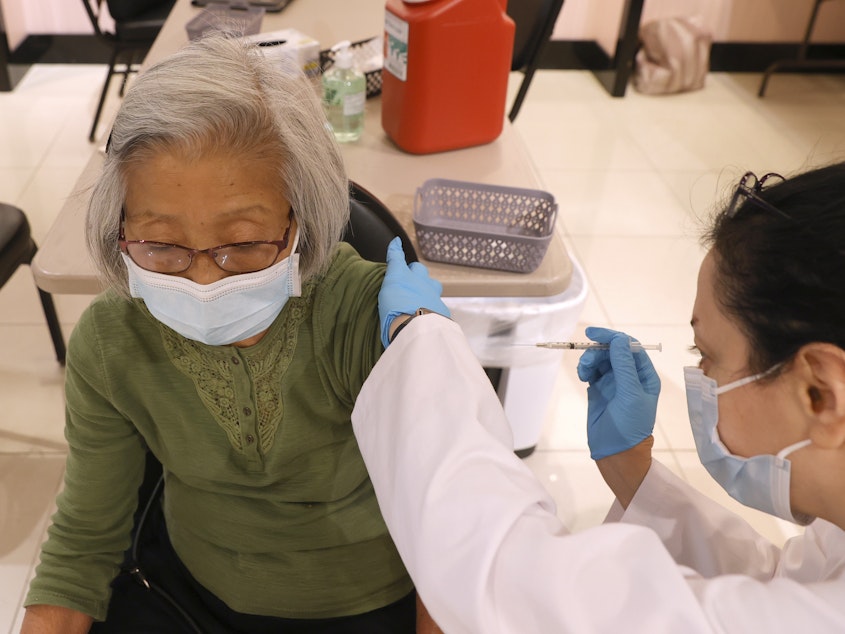Pfizer and BioNTech ask FDA to authorize COVID vaccine booster for people 18+

Pfizer and BioNTech have asked the Food and Drug Administration to authorize their COVID-19 booster shot to all people 18 and older.
The companies say the request is based on results from a study of more than 10,000 volunteers that show vaccine efficacy of 95% or greater for people receiving the booster.
The two companies made a similar request in September, but at that time a committee of independent experts that advises the FDA on vaccine matters voted against it.
Instead, the committee recommended that the vaccine be offered to people older than 65 and younger people at increased risk of a severe case of COVID-19 because of an underlying medical condition, a job or a living situation.
The FDA decided to follow the committee's advice.
Sponsored
The results of the companies' booster study were not available to the committee when it offered its recommendations.
According to the Centers for Disease Control and Prevention, nearly 25 million people in the United States have received a COVID-19 booster shot, or about 13% of the U.S. population. More than 30% of people 65 and older have received a booster.
It's not entirely clear how many more people would qualify for a booster if the FDA grants the Pfizer-BioNTech request.
The "underlying medical" conditions that already make some eligible for a vaccine are rather broad: people with mental health conditions, smokers or former smokers, people who are overweight or obese to name a few.
Jobs in high risk settings are also fairly broadly defined: first responders, teachers, day care workers, manufacturing workers and grocery store workers are among those covered.
Sponsored
A third dose of the vaccine was made available to certain immunocompromised people in August.
Anecdotal evidence suggests that many drugstores providing the boosters are not scrupulous in making sure people fall into one of the authorized categories.
The FDA has not scheduled a meeting of its independent advisory committee for November, suggesting the agency may make a decision on the Pfizer-BioNTech on its own without seeking external advice. [Copyright 2021 NPR]



